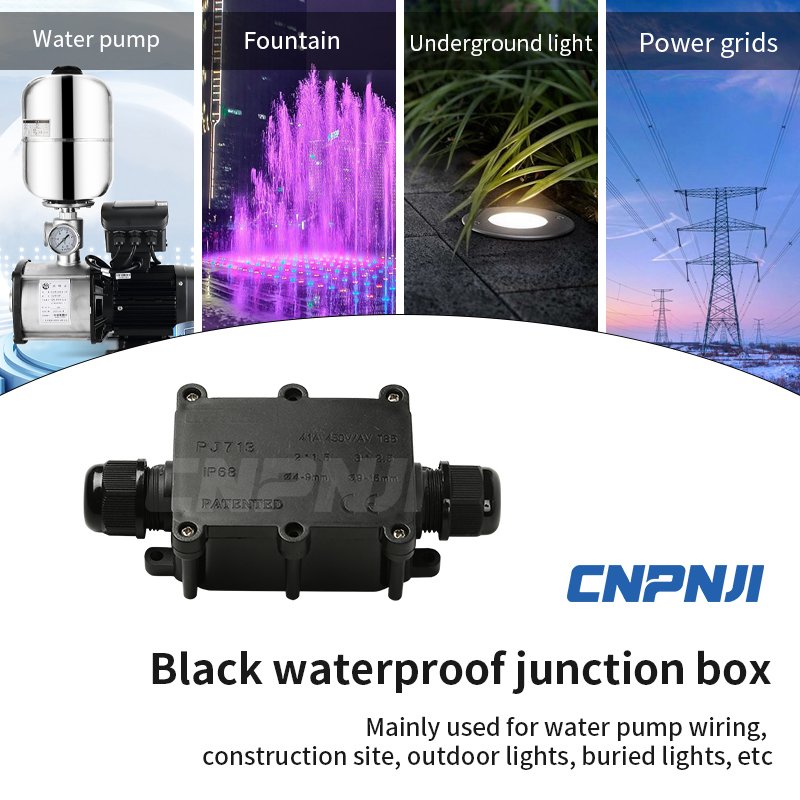Black Junction Box Material and Durability
Black Junction Box Material and Durability
Black junction boxes are often made from several different materials, each with its own characteristics and durability. Here are some common materials and their characteristics:
Plastics (such as ABS or PVC):
Corrosion resistance: Plastic junction boxes are very resistant to water and chemicals, making them suitable for use in wet or corrosive environments.
Insulation properties: As a non-conductive material, plastic provides good electrical insulation, ensuring safe use.
Durability: Although plastics are relatively strong, they may crack or deform under extreme temperatures or heavy blows.
Metals (such as steel or aluminum):
Structural strength: Metal junction boxes are generally stronger and more durable than plastic ones, making them suitable for heavy-duty or industrial applications.
Fire resistance: Metal is a non-combustible material and can be used in high-temperature environments for increased safety.
Conductivity: Metal junction boxes need to be grounded to prevent electrical failures, which is a safety factor that must be considered when using them.
Glass fiber reinforced plastic (GFRP):
Chemical resistance: This material has strong resistance to a variety of chemicals, making it ideal for chemical environments.
Heat resistance: GFRP has better heat resistance than ordinary plastics, making it suitable for use in high-temperature environments.
Mechanical strength: The reinforcement of glass fiber makes the junction box have higher load-bearing capacity and impact resistance.
When selecting the right junction box material for a specific application, environmental conditions (such as temperature, humidity and chemical exposure) as well as electrical requirements need to be considered. Each material has its advantages and limitations, and the right choice can ensure the performance and safety of the junction box.

